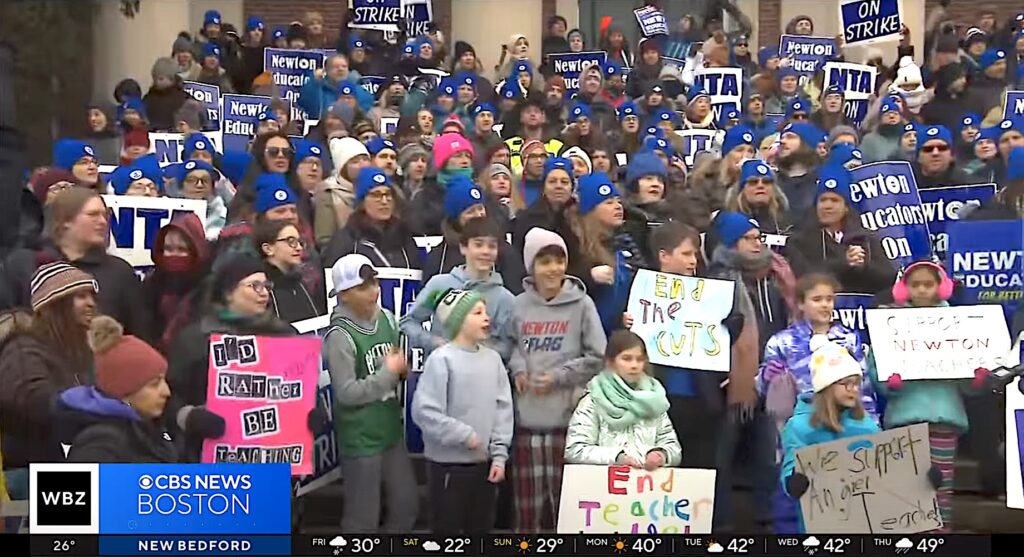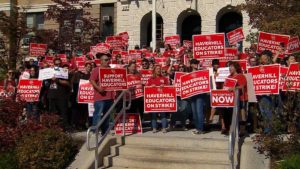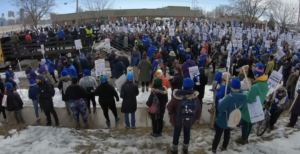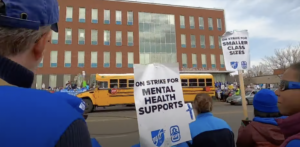‘Illegal actions harm our kids and disrupt the lives of our families,’ says Massachusetts Mayor on teachers’ union’s illegal strike
A Massachusetts teachers’ union has gone on strike, even though the state outlawed public union strikes.
The Newton Teachers Association voted to strike on Thursday after negotiations with the…

A Massachusetts teachers’ union has gone on strike, even though the state outlawed public union strikes.
The Newton Teachers Association voted to strike on Thursday after negotiations with the school board failed. The strike began on Friday and continued at least through Tuesday.
“We are deeply disturbed that the mayor is insisting that schools are sufficiently funded,” NTA claimed in a statement. “While other districts have recognized the growing needs of students and increased their allocations to public schools, Mayor [Ruthanne] Fuller continues to underfund our schools in Newton.”
The union is demanding higher wages, more support staff such as therapists and social workers, and paid family leave for all educators.
However, noted teachers’ union critic Corey DeAngelis posted a table of Newton teacher salaries on social media. Each “step” in the graph correlates to a year of teaching experience.
The table shows that Newton teachers start with a salary of $80,000 or more, depending on education level. With five years of experience, the salary is $90,000 minimum.
After teaching for a decade, even educators with only a bachelor’s degree earn well over six figures.
The mayor of Newton warned that a strike wouldn’t aid negotiations and would instead undermine student learning.
“The School Committee does not waver in our commitment to settle a competitive contract that recognizes the dedication of our educators and supports our students,” Fuller said in a statement on Jan. 16. “We believe a strike would do nothing to further negotiations, and would only harm our students.”
She also noted that public employee strikes are illegal in Massachusetts.
“Strikes by teachers are illegal because schooling is essential,” Fuller said after the strike began. “Illegal actions harm our kids and disrupt the lives of our families and caregivers. Every day the NTA engages in an illegal strike, our kids lose important classroom time.”
Massachusetts isn’t alone in banning teachers’ union strikes.
Thirty-five states prohibit public employees and unions from striking, but unions regularly defy the law anyway.
“By the time the courts move to declare a strike illegal or take action against a union violating state law, the strike is already over,” Ashley Varner, vice president of Communication and Federal Affairs at the Freedom Foundation, told The Lion.
“The price of an illegal strike to a union is often negated by the financial gains these unions will see by taking a percentage of increased teacher wages,” Varner continued. “Strikes like this show exactly why unions got into this business to begin with. It isn’t to improve education or to help children. It’s money.”
Albert Shanker, former president of the United Federation of Teachers, even famously said, “When schoolchildren start paying [union] dues, that’s when I’ll start representing the interests of schoolchildren.”



